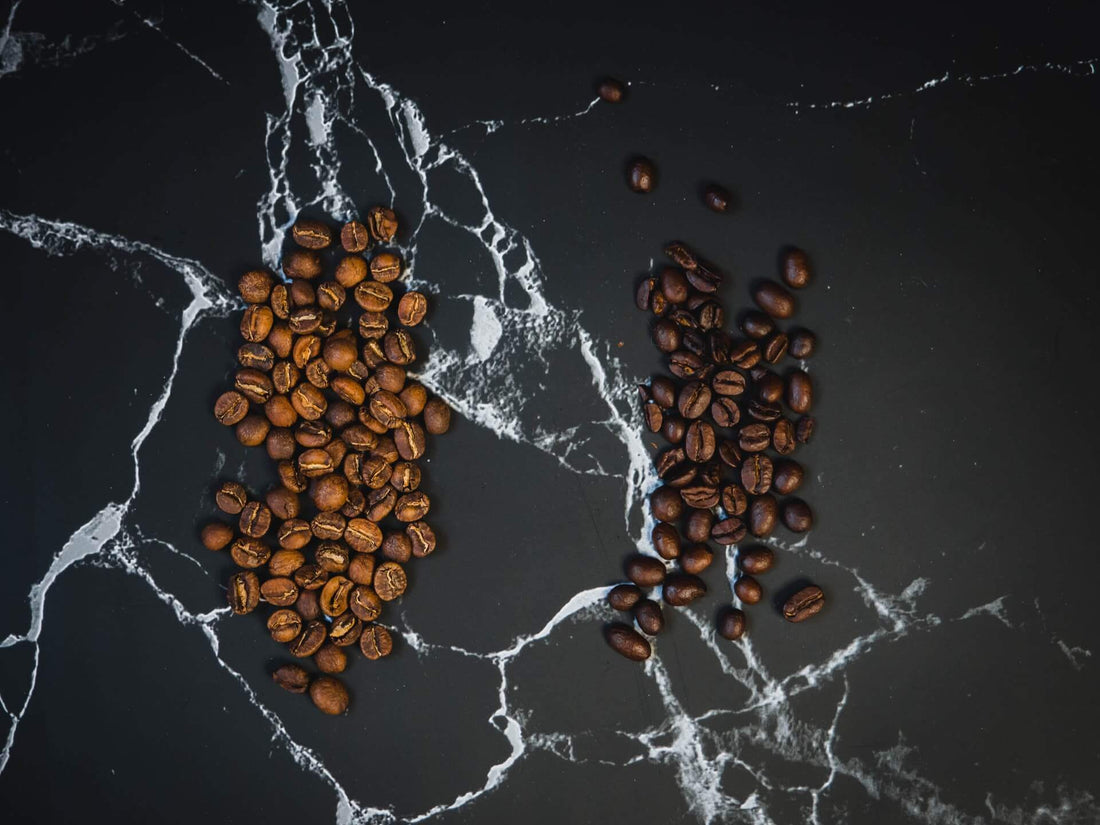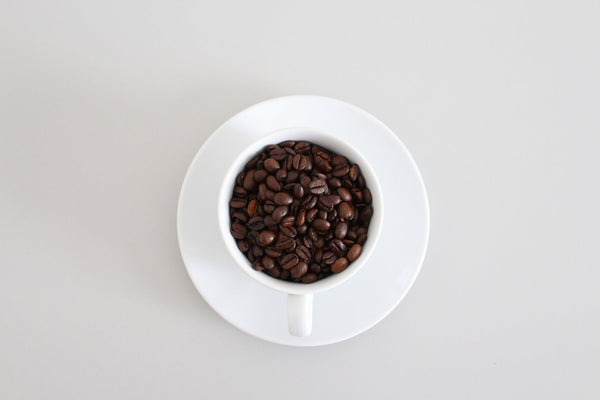
Does Dark Roast Have More Caffeine
Does Dark Roast Have More Caffeine
With more and more people transitioning from dark roast coffee to light roast coffee, it seems as though the age old question of caffeine content has been awoken, whether or not dark roast coffee has more caffeine. After all, it's the caffeine that we are after at the end of the day, right?
So, does dark roast have more caffeine? To answer it simply, no, a dark roast coffee does not have more caffeine. A light roast coffee bean actually has more caffeine than it's dark roasted counterpart. However, it gets much more complicated when it comes to actually drinking the coffee, let me explain.
Light Roast Coffee Vs Dark Roast Coffee
What has more caffeine?
Do you want the real answer? Tea. Yes, that's right, tea has more caffeine than its hipster cousin, coffee. But you don't care about tea, you want to know if light roast or dark roast coffee has more caffeine.
Well, if you compared the caffeine content of a single lightly roasted bean and a dark roasted bean, from the same origin, the truth is simple. A light roasted coffee bean, or blonde roast coffee as some call it, does have more caffeine. Not a lot, just a little.
Okay cool, now why is it more confusing than that? Well, unless you are eating these coffee beans whole, you need to extract the caffeine from the bean. Extracting coffee is sort of complex on a molecular level, things like water temperature, time, water type, extraction method (French press, pour over, cold brew, etc.), and grind size matter a lot.

Grind Size
In order to extract that caffeine from the coffee bean, you first need to grind said coffee beans. Unless you are a coffee geek like me that used the best manual coffee grinder, chances are, you aren't using different grind settings based on roast degree (light, medium, dark). So, your grinds are probably all the same level of coarseness, unless your coffee provider knows to adjust their grind size. With me so far?
It turns out that the longer you roast a bean, the more its cell structure starts to break down. This ultimately causes the bean to become porous unlike its dense counterpart, the light roasted coffee bean. When you try to pass water through a porous particle, it can pass through it easier which helps grab every last bit of caffeine on its way through. Think of the dark roasted coffee grounds as a sponge or even Swiss cheese.
However, since the light roasted bean is super dense and not as porous, water sort of goes around it, missing out on a lot of the caffeine. Therefore, if you aren't changing the grind size, the dark roasted coffee would now be just as caffeinated as the lightly roasted coffee because you were able to extract more from it. Simple, right? Not yet!
Coffee Mass Vs Coffee Weight Total Caffeine

Mass
Another issue with the question of "what has more caffeine, light roast coffee or dark roast coffee?" is whether you are measuring out your coffee grounds by mass (a spoon, cup, scooper, etc.) or by weight (digital scale).
As previously mentioned, the dark roasted coffee beans' cell structure starts to break down the longer it undergoes high heat. Not only does this make the bean bigger, it also loses a lot of mass when it becomes porous. So, when you scoop a spoonful of dark roasted coffee grounds, it may equal out to 10 dark roasted beans.
However, since the light roasted coffee beans are extremely dense, that same size scoop may consist of 12 lightly roasted beans compared to the 10 dark roasted beans previously scooped. Therefore, if you are scooping based off mass, you may be using more light roasted coffee which will make that cup more caffeinated the lighter the roast degree.
You’ll notice that you are running out of light roast well before your dark roast coffee, it’s because you are using more of it, that's why! For the average coffee drinker that measures out their coffee, light roast coffee does have more caffeine. Not only because a single bean has more caffeine, but because they are using more ground coffee.
Weight
If you are measuring your coffee by weight, like a proper coffee snob (myself included), there will be an equal amount of caffeine between the light roast and dark roast coffee.
Bear in mind, since the dark roasted beans’ cell structure has broken down, you are using more beans to get to the same weight. For example, 10 grams of light roasted coffee may be equivalent to 30 beans, whereas 10 grams of dark roast coffee may be equivalent to 40 beans.
This is one reason why coffee roasters would rather roast lightly, or charge more for dark roasts, because you are wasting more of the bean. Typically, when you roast coffee, you lose 10-15% of the bean just from the bean breaking down and losing moisture, more so the darker you roast. Not to mention the fact that you use more resources to achieve a darker roast, making it even less price effective.
In conclusion, one light roasted bean may have more caffeine, but you will be using more dark roasted beans to get to the same weight. So not only will the caffeine content be the same, you'll get more caffeine from the dark roast because of the extraction process and the fact that it has such a porous structure.
Coffee Bean Origin, Variety, Process Method and Age

So far, we have been comparing the same beans if you simply roasted one darker than the other. To make things more complicated, certain types of beans have more caffeine depending on where they come from, how they were processed and even the age of the bean.
Robusta Coffee Beans vs Arabica Coffee Beans
Although there are quite a few different varieties of coffee beans, the two most well-known, and consumed, are Arabica and Robusta. Arabica coffee beans are typically regarded as sweeter, softer and more acidic. Robusta beans are typically stronger, harsher beans with less desired taste qualities. These Robusta beans are easier to grow, resilient and do contain something very important, lots of caffeine!
Robusta beans have nearly twice the amount of caffeine compared to their Arabica counterpart. That is why some of the highest caffeinated bags of coffee contain at least some Robusta beans. So if you want a more caffeinated cup, try some Robusta beans and see for yourself.
Coffee Processing

There are three primary methods to process and extract the coffee beans; washed, natural/dry processed, and honey/pulp natural. Some Indonesian coffee’s, such as Sumatra, use another method called wet-hulled, but we will focus on natural vs. washed coffee for today.
Dry processed (naturals) coffees are dried in the full cherry prior to de-pulping. Wet processed (washed) coffees are dried without the cherry. Washed coffees are de-pulped then fermented to promote the separation of any remaining tissues from the bean and parchment, then washed clean prior to drying. The washed method is more common.
You are probably wondering what this has to do with caffeine. Well, when coffee is dried naturally, more of the caffeine stays trapped within the bean. If that same bean would have been de-pulped, fermented and washed, it would contain less caffeine. So, if you want to up your caffeine content, choose a naturally processed (dry processed) coffee bean.
Age of Coffee
This one is simple, the older the coffee bean the more it starts to break down and lose some of its caffeine content. For the highest caffeinated cup of coffee, stick with a specialty coffee roaster that only purchases the most current crop cycle and roasts to order, that’s what we do!
What Has More Caffeine, Light Roast or Dark Roast?
I told you it was sort of complicated. What's important to remember is that if you are buying coffee from the same brand/roaster, and if it is 100% Arabica, there honestly won't be that big of a difference in the caffeine level. It’s more so how you prepare it that makes the difference.
Just remember, if you are preparing coffee with a scoop (mass), there will be more caffeine the lighter the roast, this can be negated by simply using less coffee grounds for lighter roasts, but that leads to another issue of coffee flavor and strength.
So, you should weigh out your coffee when possible, this will ensure you don't run out of light roast too quickly. Also, if you are grinding your own beans, you'll want your light roasted coffee slightly finer when compared to the dark roasted coffee because of the difference in porousness.
Now if you want the highest caffeinated cup of coffee possible, stick with a natural dry processed bean that is lightly roasted, fresh and ground extremely fine. Better yet, just eat some raw, unroasted Robusta beans, that'll wake you up!
